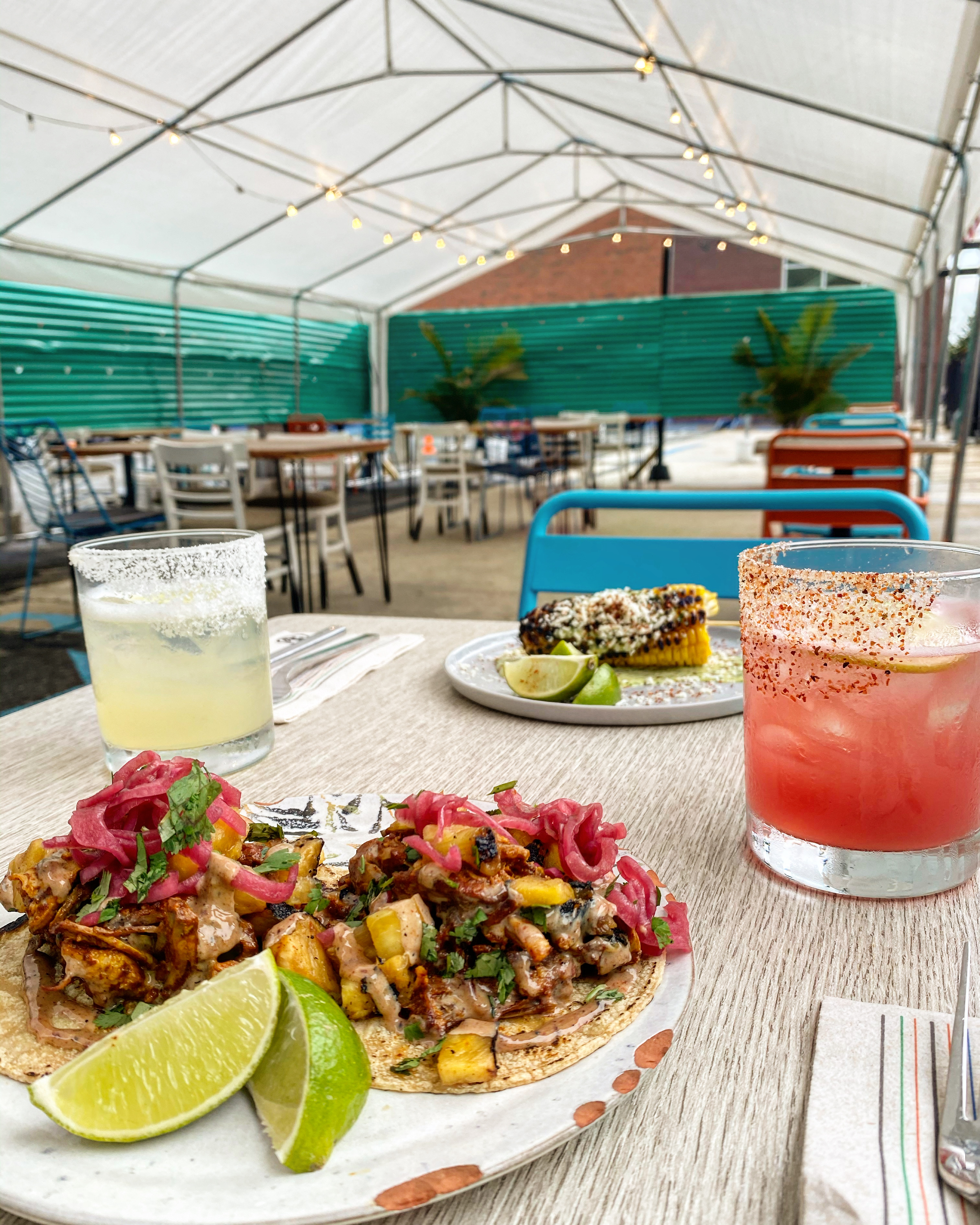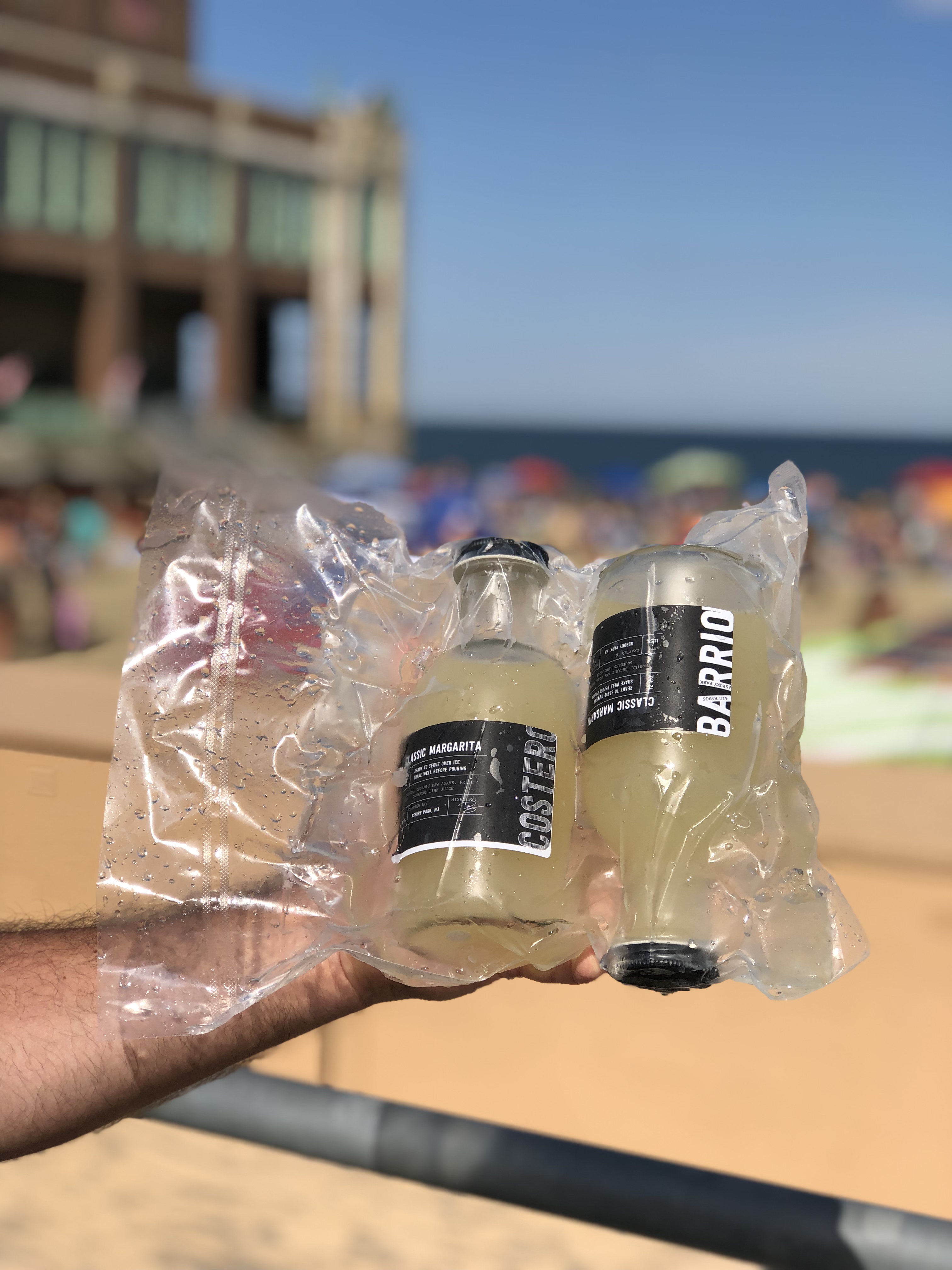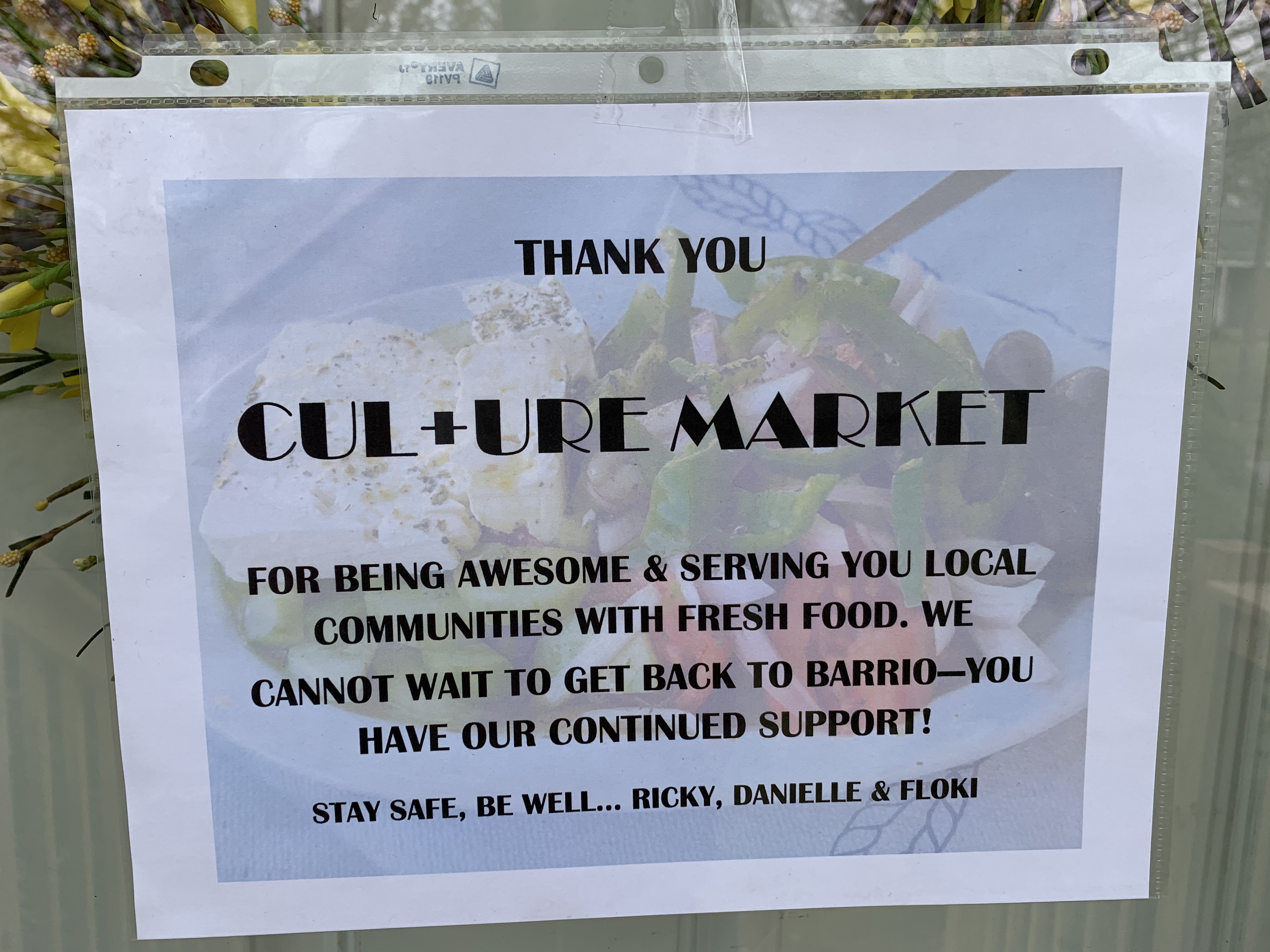Situated in Asbury Park, New Jersey, Cul+ure Collective’s brand of hospitality draws inspiration from the world travels of owner Antony Bustamante, yet remains rooted in the charm of a coastal Garden State town.
Like other restaurants that switched to delivery-focused models amid the Covid-19 outbreak and subsequent lockdown, Cul+ure Collective found itself making significant changes to its menu and the utilization of its space.
In March, Chris Viola started testing the menus of his three restaurants —now all under the Cul+ure Collective brand— to better understand what foods were more suited for delivery and pickup. He and his team of experts realized early on that items like tacos didn’t fare well after a 30-minute journey, though other Mexican-inspired menu items did. So they got creative to offer their neighborhood their innovative and delicious offerings.

Another delivery-friendly cuisine: Middle Eastern.
With roots in Lebanon, Chris Viola told us how their chefs used to make the classic Mediterranean garlic sauce from scratch for sit-down guests.
As part of a transition to the ghost kitchen format, the newly formed Cul+ure Collective began to work the 3 existing restaurant brands out of one kitchen. A 4th ghost kitchen concept was soon born.
There is a certain sense of freedom that comes with options. People love variety.
Few of us could imagine eating the same few foods for our entire lives.
Leveraging Bbot’s online menu platform, Cul+ure Collective added all of their brands, Reyla, Barrio Costero, and Cul+ure Market, to a single ordering experience for customers. Doing so has brought a significant return on investment, where the average check is now roughly 20% greater than before the merge.
It looks like that at-home-Friday-date-night just got better -- you can have nachos as an appetizer with a Modelo Especial on the side, shawarma for the entree with a chocolate negroni, and churros for dessert. They even have an affordable ‘Date Night’ special that comes with a choice of wine or rose or beer, hummus, choice of a bite, choice of 2 entrees, and an Israeli salad.
In addition to greater returns associated with consolidating 3 brands under one menu, Chris Viola decided to work with Bbot to have greater control over the company’s brand.

And what about those tacos?
While it may be tricky to deliver tacos fresh, Cul+ure Collective has experimented with taco kits, in addition to nacho kits, and you can even pair one of those with their margarita kits. These kits will be available for sale through March 2021.
This seems to be working well for them as their pork and chicken tacos are the most popular items on the menu.
Although ghost kitchens are an effective way to sell multiple brands under one roof thereby saving on overhead costs, there’s no substitute for the experience of bonding with friends or loved ones over a meal at a local restaurant.
This is why they’re planning on testing outdoor seating in February, socially distancing guests, and using heaters.
When asked about his thoughts on the impact of technology on the restaurant industry, Chris responded saying: “Everyone’s been a server and had aspects of the job they didn’t like. While it may mean that fewer young kids are taking on those part-time gigs, a lot of hospitality tech is freeing chefs, bartenders and other hospitality professionals to really specialize and focus on what matters, the guest and the product, while even increasing earning potential.”

He further stressed that the hospitality industry, in general, is fragmented, and technology really helps with marketing and other areas so that it’s easier for hospitality players to specialize instead of necessarily sticking to “well-rounded” experiences.
He’s also really interested in the potential of using digital ordering and payment tools in conjunction with the ghost kitchen model to help up-and-coming chefs gain experience and brand awareness.
Chris believes that doing so will allow those right out of culinary school to really get their bearings in the industry and have the ability to experiment with different menu item ideas and concepts.
Another belief that he shares with the folks at Bbot is that technology is an enabler, but hospitality is human. People in the industry care about the guest experience and that element cannot [and should not] be replaced.




